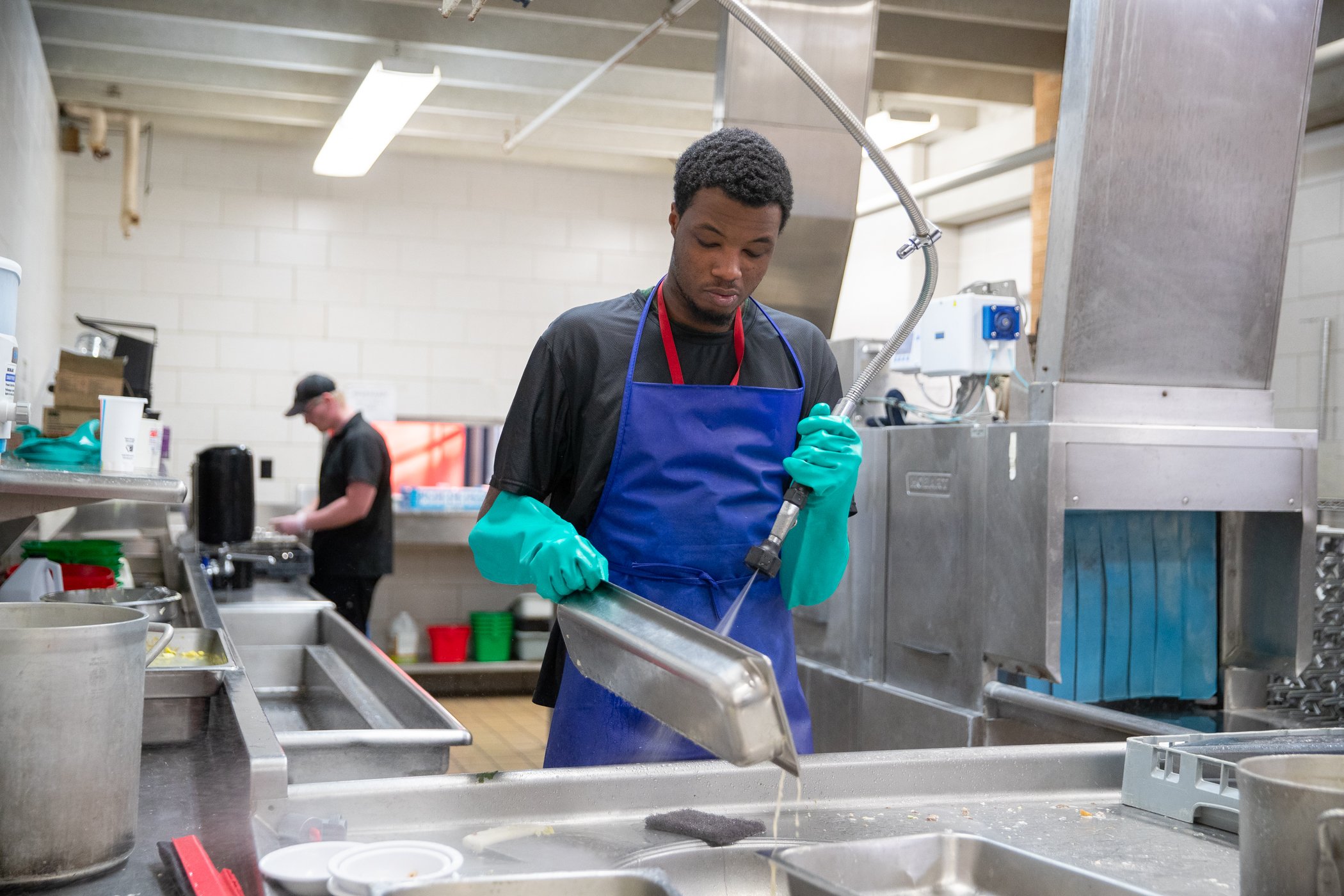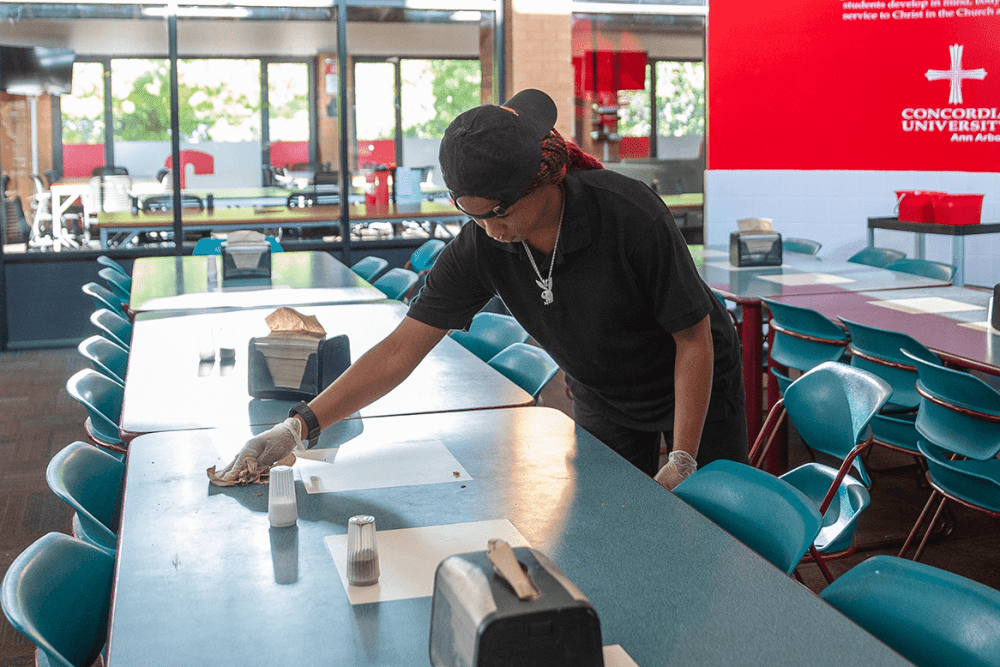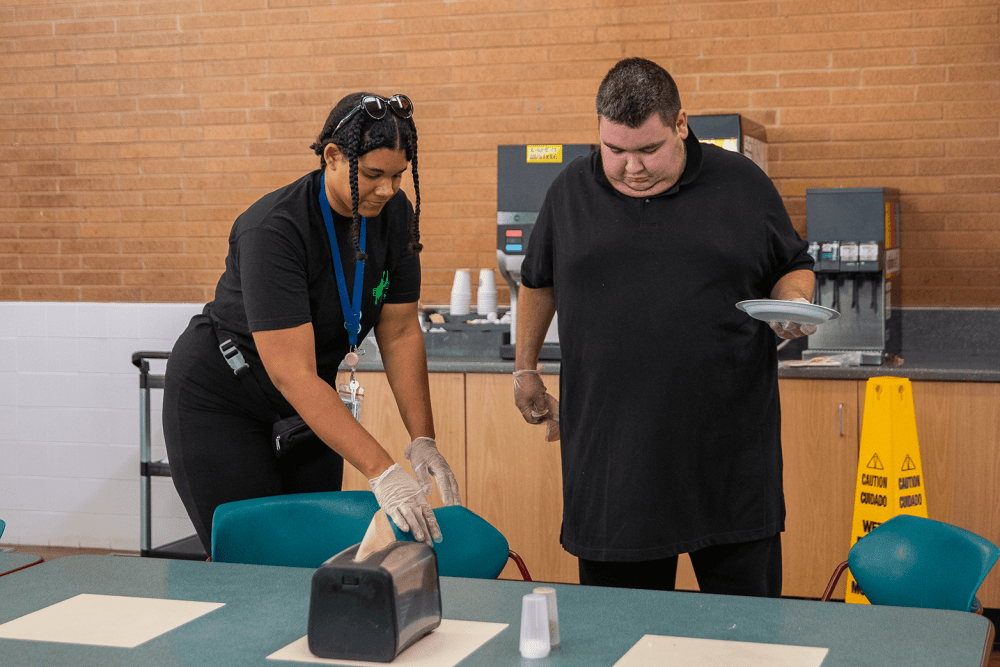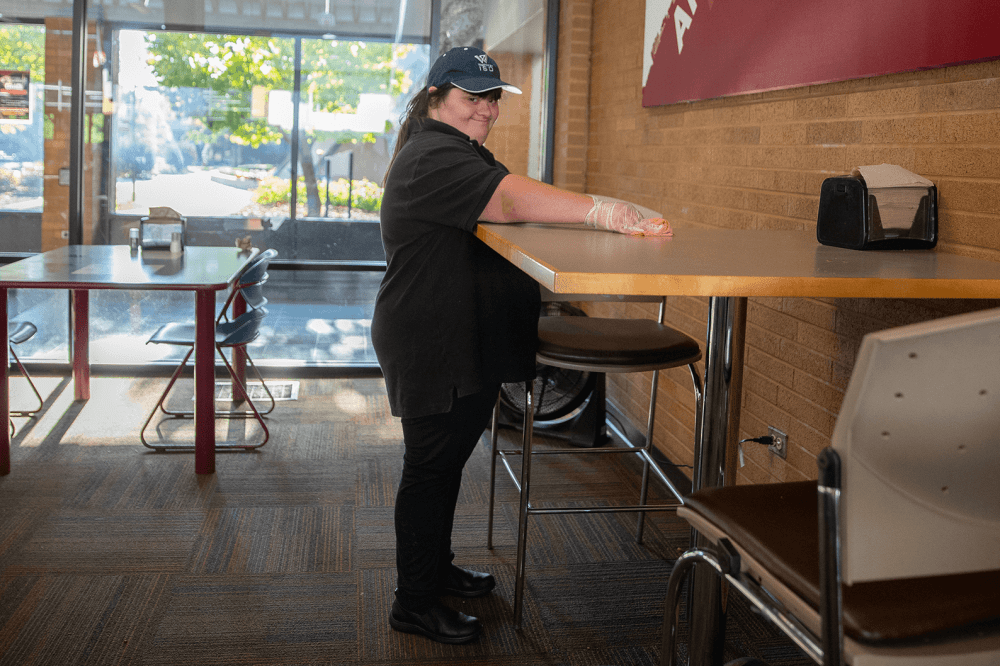
Concordia University Ann Arbor has opened its doors to a new type of learner this year. CUAA welcomes young adults with intellectual or developmental disabilities to work on campus while building skills for their future.
The collaboration between the Washtenaw Intermediate School District (WISD) and Concordia University Ann Arbor is the latest partnership for CUAA. It offers young adults aged 18-26 with intellectual or developmental disabilities the chance to develop essential life skills and gain valuable work experience. Through the Young Adult Program, this partnership aims to go beyond traditional classroom education. It prepares students for independent living and future employment.
The partnership started with a single cold call initiated by Christina Stark, a teacher at WISD located at Washtenaw Community College’s Young Adult Center. Stark called Dale Massey, Sodexo general manager at Concordia University Ann Arbor. Their conversation sparked a promising partnership with promises of a lasting collaboration for years to come.
Stark explained that Concordia is an excellent partner for this collaboration because the campus offers WISD students the chance to interact with their college peers. The environment provides a real taste of the college experience while also imparting crucial life skills.
“Our students really benefit from being around other students and feeling a part of Concordia,” said Stark.
Empowering Young Adults
The Young Adult Program operates on the premise of offering more than just classroom knowledge. Its primary aim is to equip young adults with disabilities with practical life skills. This, in turn, fosters a sense of responsibility and independence within them. At its core, this program eases the transition from high school to adulthood, helping students embrace life’s challenges with courage.
Students participating the program find themselves engaged in a variety of activities, both on and off campus. From Monday to Thursday this includes tasks in the Cardinal Café at Concordia University Ann Arbor, where they learn the values of hard work, teamwork, and everyday life. From cleaning tables, vacuuming, or helping clean dishes, these experiences serve as a testament to their dedication, Massey explained.
“I didn’t want them to do the same tasks every day, so I rotated them in various activities. Sometimes they come and wash dishes, clean the counters, vacuum the floors – my goal is to have them help with food prep because I know the students can do that.”
Before heading to an offsite location, students undergo basic safety training, ensuring their readiness for a real-world work environment. Notably their efforts are voluntary and contribute to their overall classroom experience. They also have the option to use public transportation with teachers, teaching them essential skills for future job-related commuting.





Goals
One of the goals of the Young Adult Program is to put less stress on the staff of the company they are volunteering at. There is always a Teaching Assistant with the students to provide training and support to the students and to be a liaison between the company they are volunteering at and the students. Also, the Young Adult Program want to provide good programming and opportunities for the students and that benefits the community as well.
“A lot of shortage of staff everywhere and we are hoping to fill the gap, and this provides real hands-on training and that is how they want it done- the employer or the business we are working with,” said Stark. “It is applicable because it is how they want their staff trained and how they want things done.”
Future Growth
This partnership has only been going on for a couple of months but with hopes to maintain it and grow. Massey would love to see another group of students come in here next year and maybe eventually helping with food prep especially since the students are very polite and are getting a lot out of the program.
“The students are making a difference in their community. They are able to apply their knowledge and skills to a real-world work experience.”
Stark also wants to sustain the partnership with hopes of expanding it to maintenance and other areas with the Concordia University Ann Arbor campus. By nurturing these young adults with disabilities, the program contributes to a more inclusive society and a workforce that appreciates diversity and embraces unique talents.
“I can’t stress the community partnerships; it would be difficult to run a solid program who partner with us like Concordia has,” said Stark.
The welcoming environment at CUAA has also enabled a partnership with AbleLight College, formerly called Bethesda Lutheran Communities, which began last year. Angela Post, Director of Admissions for AbleLight College, is ready to identify opportunities for students from AbleLight College to develop their job skills on campus.
Want in?
AbleLight provides comprehensive support for individuals with intellectual and developmental disabilities. Students in the program complete a two-year curriculum, earning a Certificate of Applied Learning. This includes practical life and job skills training, enabling them to attend regular Concordia University classes and live in on-campus dorms. After graduation, they’ve found employment in fields like maintenance, restaurants, travel agencies, daycares, hospitals, and offices.
If you have any questions you can email Angela Post at angela.post@ablelight.org.
—This story is written by Keara Chaperon, Social Media Manager for Concordia University Ann Arbor. She may be reached at keara.chaperon@cuaa.edu.